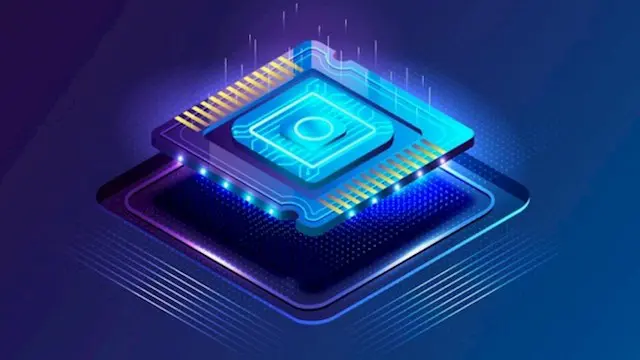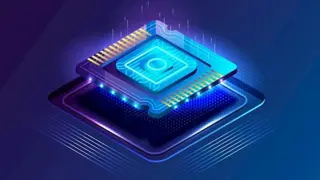
Computer Hardware Engineering
Self-paced videos, Lifetime access, Study material, Certification prep, Technical support, Course Completion Certificate
Uplatz
Summary
- Certificate of completion - Free
- Reed courses certificate of completion - Free
Add to basket or enquire
Overview
Uplatz provides this comprehensive training on Computer Hardware Engineering. This is self-paced course consisting of video lectures. You will be awarded Course Completion Certificate at the end of the course.
What Does a Computer Hardware Engineer Do?
Computer hardware engineers create the physical components that make computers run. They design new hardware systems, test their designs, analyze their test results, and manage manufacturing for completed projects. When new software changes users’ needs, these professionals redesign hardware to work with the new programs. Candidates typically need at least a bachelor’s degree to land hardware computer engineering jobs.
Most hardware engineers work for computer companies and component manufacturers, while others work with research organizations and government employers. These professionals typically work full time with regular office hours. In this era of quick computer advancement, hardware engineers enjoy opportunities to work on exciting emerging technology. For example, some design artificial intelligence and virtual reality machines. The hardware engineering profession to expected to grow by upwards of 10% over the next couple of years.
Computer hardware engineers design and supervise the manufacture and installation of computer systems and related products. They often spend considerable time solving problems, guiding installation, and conducting computer product testing. The following page provides an overview of the descriptions, salary information, and occupational projections for computer hardware engineering and related careers.
This field is extremely competitive, so candidates must set themselves apart with excellent academic performance and certifications.
This Hardware course is an introduction to the world of Information Technology, or IT. You’ll learn about the different facets of Information Technology, like computer hardware, the Internet, computer software, troubleshooting, and customer service. By the end of hardware engineering and networking course, you’ll be able to: assemble a computer from scratch; choose and install an operating system on a computer; free up space on your hard drive; fix problems with Windows. There are a lot of new terms and concepts to learn that can seem unfamiliar and somewhat confusing – but this course will introduce you to everything you need to know about Computer Hardware.
People who wish to learn more about computer hardware, the Internet, computer software, troubleshooting, and customer service should take the Hardware Networking Course. This IT course will expose you to the world of information technology, covering everything from building a computer from the ground up to comprehending various types of network technologies and installing operating systems on a computer.
This course covers everything from connecting a keyboard and mouse to attaching a hard drive and SSD, as well as the distinctions between an internal and external hard drive. What is BIOS, Different Types of Software and Operating Systems, what is a Motherboard and Troubleshooting Motherboard Issues, Installing Printers and Scanners and Troubleshooting, Installing RAM and Troubleshooting RAM Issues, Fixing Mobile Phones and Devices, Assembling and Disassembling a PC, Different Types of Processors, Different Types of Cables and Ports, Installing Windows and Unix Operating System. This Hardware Engineering teaches users how to repair a computer and help you understand the typical failures that can happen with computers.
Top industry professionals curate Computer Hardware Training, which you may study in your own language online. This Computer Hardware Certification course will help you improve your CV and raise your chances of getting hired. This course is structured in such a manner that we can confidently proclaim it to be the most effective approach to study computer hardware. Begin by learning about computer hardware and improving your abilities. You will be able to pass any Hardware Interview after completing this course.
Curriculum
Course media
Description
Computer Hardware Engineering - Course Curriculum
- Basics of Hardware
- Basic Computer Architecture
- Computer Instructions
- Infix Postfix Stack
- Binary Numbers
- Processors
- Memory
- Cache
- Memory Type Selection
- Disk Drives
- NTFS
- CD ROM
- Pipelining
- Instruction Level Parallelism (ILP)
- Monitors
- Printers
- Communication Buses & Bridges
- Processor Specifications
Who is a Hardware Engineer
Computer hardware engineers know all about computer components backward and forward. They design hardware elements and test existing hardware. They dissect and interpret test data and draw appropriate conclusions to understand what to change to get rid of bugs so that all computer and electrical systems under their watch can work like a charm.
Circuit boards and microprocessors will be your best friends on the job. You might work in a research lab or a manufacturing company producing high-tech equipment. You might even land a position at the government if that is what gets you going.
You will throw around terms like embedding, abstraction, and concept development like a pro. And while you do, you will develop chips and other physical pieces and accessories that build up a computer and allows the flawless functioning of intricate software.
What Does a Hardware Engineer Do
Computer hardware engineers research, design, develop, and test computer systems and components such as processors, circuit boards, memory devices, networks, and routers. These engineers discover new directions in computer hardware, which generate rapid advances in computer technology.
How To Become a Hardware Engineer
Most computer hardware engineers need a bachelor’s degree from an accredited computer engineering program.
Education
Most entry-level computer hardware engineers have a bachelor’s degree in computer engineering, although a degree in electrical engineering or computer science also is generally acceptable. A computer engineering major is similar to a major in electrical engineering but with a heavy emphasis on computer science.
Many engineering programs are accredited by ABET (formerly the Accreditation Board for Engineering and Technology). Employers may prefer students from an accredited program. To prepare for a major in computer or electrical engineering, students should have a solid background in math and science.
Because hardware engineers commonly work with computer software systems, a familiarity with computer programming usually is expected. This background may be obtained through computer science courses.
Some large firms or specialized jobs may require a master’s degree in computer engineering. Some experienced engineers obtain a master’s degree in business administration (MBA). All engineers must continue their learning over the course of their careers in order to keep up with rapid advances in technology.
Other Experience
Some students participate in internships while in school so that they can gain practical experience.
Advancement
Some computer hardware engineers can advance to become computer and information systems managers.
Important Qualities
Analytical skills: Computer hardware engineers use computer programming tools to analyze the digital circuits in hardware to determine the best design.
Creativity: Computer hardware engineers design new types of information technology devices.
Critical-thinking skills: These engineers use logic and reasoning to clarify goals, examine assumptions, and identify the strengths and weaknesses of alternative solutions to problems.
Problem-solving skills: Computer hardware engineers identify complex problems in computer hardware, develop and evaluate possible solutions, and figure out the best way to implement them.
Speaking skills: Engineers often work on teams and must be able to communicate with other types of engineers as well as with nontechnical team members.
Course Outcomes
- Introduction to Computer Hardware and Networking
- Understanding the Architecture of Computers
- Motherboard Technologies
- Processor Technologies
- Memory Technologies
- Storage Technologies
- Switch Mode Power Supply (SMPS)
- Understanding BIOS and Performing a Power-On-Self-Test
- Optical Storage Technologies
- Start-Up Menu
Who is this course for?
Everyone!
Requirements
Passion and determination to succeed and achieve your goals!
Career path
- Computer Hardware Engineer
- Hardware Design Engineer
- Embedded Hardware Engineer
- Computer Hardware & Networking Engineer
- Hardware Architect
- IT Hardware Engineer
- Hardware Testing Specialist
- Engineer - Hardware Development Engineering
- Software Engineer
- Server Engineer
- Computer Service Engineer
- Embedded Systems Engineer
- Hardware EE and Test Engineer
- Hardware Engineer - Lead
- Hardware/Software Architect
Questions and answers
Hi How long is this course valid for? Thanks
Answer:Hi JM The course access is provided for lifetime! Team Uplatz
This was helpful.Can I use this certificate to farther my education since I want to become a computer hardware engineer. I wish to start a new trade.
Answer:Hi Kofi Both Reed and Uplatz will issue separate certificates to you post completion of this course. These will be "Course Completion Certificate" to certify that you completed the course successfully. This certificate can really help you to enhance your career, start a new trade, crack the relevant jobs, and so on. Regards Team Uplatz
This was helpful.Does the Course Completion Certificate say computer engineering
Answer:Hi Eddie Once you complete the course, you will get certificate from reed with the course name. But the additional certificate that we (Uplatz) will issue as the training provider, you can request any minor changes in the certificate post purchase/completion of your course and our course team will evaluate your request. If approved, we will issue you the certificate accordingly. Team Uplatz
This was helpful.
Certificates
Certificate of completion
Digital certificate - Included
Course Completion Certificate by Uplatz
Reed courses certificate of completion
Digital certificate - Included
Will be downloadable when all lectures have been completed
Reviews
Currently there are no reviews for this course. Be the first to leave a review.
Legal information
This course is advertised on reed.co.uk by the Course Provider, whose terms and conditions apply. Purchases are made directly from the Course Provider, and as such, content and materials are supplied by the Course Provider directly. Reed is acting as agent and not reseller in relation to this course. Reed's only responsibility is to facilitate your payment for the course. It is your responsibility to review and agree to the Course Provider's terms and conditions and satisfy yourself as to the suitability of the course you intend to purchase. Reed will not have any responsibility for the content of the course and/or associated materials.


